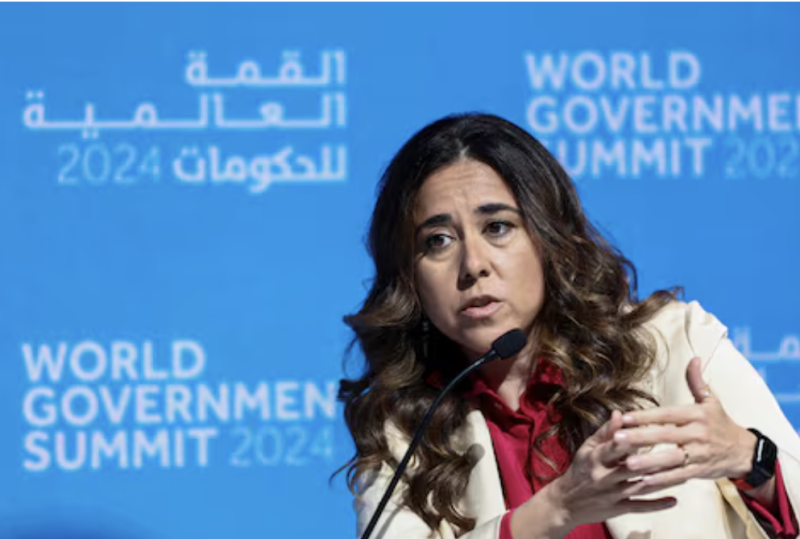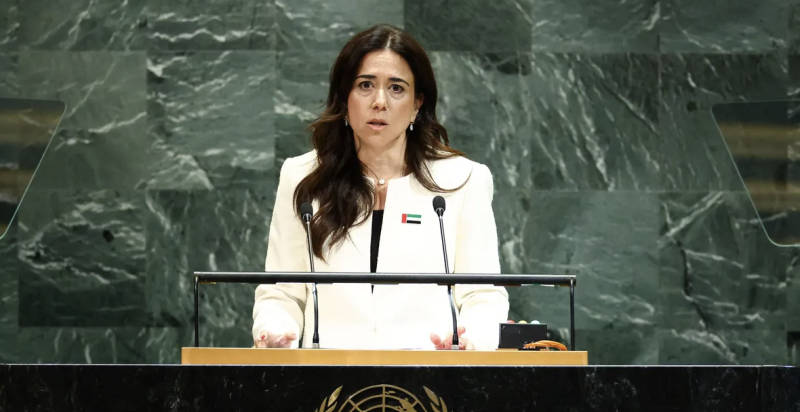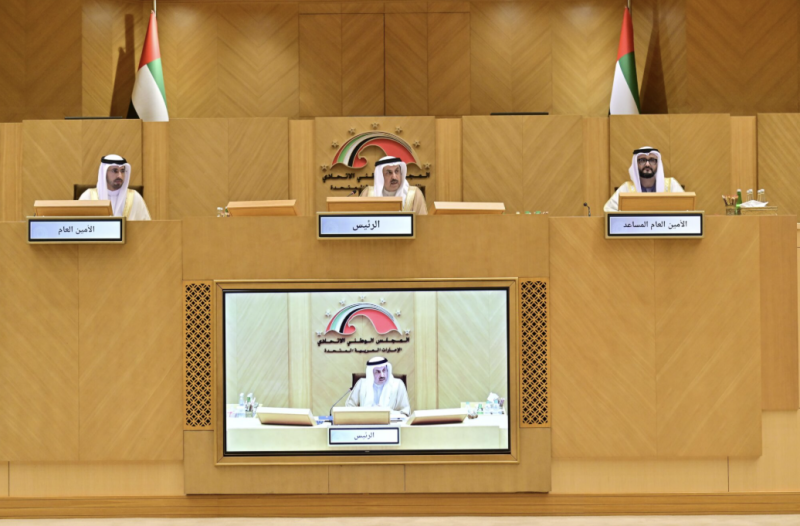Chinese investors turning to UAE property market for value appreciation


With China dropping its Zero-COVID policy and permitting its citizens to travel and invest overseas, Chinese investors seeking value appreciation find the UAE property market an excellent avenue to park their money.
Farhad Azizi, CEO of Azizi Developments, told Zawya Projects that Chinese investors were major buyers of Dubai real estate in the first quarter.
"Chinese investors accounted for 12 percent of all Dubai property transactions [in the first quarter], which marks a significant rise from eight percent recorded during the same period last year," he said.
"We are seeing this surge in interest firsthand in our property sales, with a similar figure being reflected in our transactions," he said, adding that the company is selling substantially more units per day than it did in the peak year of 2019.
In the first quarter of 2023, real estate sales transactions in Dubai grew 50 percent year-on-year (YOY) in volume to touch 30,852 units. In terms of value, the growth was 60 percent YOY to touch 88.56 billion UAE dirhams ($24 billion), according to Dubai Land Department (DLD) data.
Developers upbeat
Azizi's sentiment reverberates with developers and consultants across the sector. "There are over AED1 billion worth of real estate transactions per day. It is the first time in Dubai that the figure has crossed AED1 billion; it has not come down since. I expect a further rise in the appetite of Chinese investors soon," said Empire Developments CEO Kamran Ghani.
Driven Properties Founder and CEO Abdullah Alajaji said investments into UAE real estate by Chinese non-residents have expanded five-fold between the first quarter of 2022 and the first quarter of 2023.
He described first quarter 2023 activity as "green shoots of recovery" towards the 2019 level.
Knight Frank's Partner and Head of Middle East Research, Faisal Durrani, said there is an element of 'revenge spending' following the lifting of the pandemic restrictions.
Durrani said that Chinese buyers accounted for 23 percent of all Knight Frank's purchases in 2022 and figured routinely among the top five nationalities purchasing Dubai residential properties before the pandemic, adding he expected them to return to the league table rapidly.
In 2019, buyers from mainland China accounted for just two percent of all super-prime sales for Knight Frank. In the last 12 months, they have jumped to 17 percent, leaving London trailing at 14 percent, according to Christine Li, Head of Research, Asia Pacific at Knight Frank.
"Dubai is moving up the ranks of global destinations for Chinese buyers," she said.
Interestingly, Chinese investment interest in the UAE is not restricted to Dubai alone.
According to Durrani, 77 percent of East Asian HNWIs [High Net Worth Individuals] who have shown significant interest in purchasing real estate properties are keenly considering the rest of the UAE, particularly Abu Dhabi.
From among the HNWI interested in investing in UAE, 70 percent of the East Asian HNWI, as compared to 45 percent of global HNWI, found Abu Dhabi attractive as a complementary hub to Dubai, he said.
Drawing HNWI, UHNWI
The UAE recorded its highest Foreign Direct Investment (FDI) inflow of nearly $23 billion in 2022, according to the World Investment Report 2023 published by the UNCTAD in July.
Azizi pointed out that while HNWIs and UHNWIs [Ultra-High Net Worth Individuals] are buying Dubai's luxurious properties for end-use purposes and snapping up smaller units for investment reasons, they are also buying into Dubai's solid reputation as a safe, growth-inclined, tourism and business-conducive metropolis.
He referred to Knight Frank's finding that affluent investors are set to invest $2.5 billion into Dubai's property market in the coming year.
Azizi said that over a fifth of these HNWIs have expressed willingness to allocate between $5 million and $10 million to their real estate portfolio in the emirate.
"In an even more striking display of their confidence in the city's property market, eight percent of these investors are set to invest more than $80 million," he underlined.
"Dubai has undoubtedly solidified its position as a global hub for Ultra High Net Worth Individuals, and Dubai's property market remains a favoured destination for them," said Adham Younis, Group CEO at D&B Properties.
From among these global HNWIs and UHNWIs interested in Dubai properties, East Asian investors constitute 55 percent, he said.
"Chinese investors have shown keen interest in actively participating in Dubai's flourishing market, as observed during D&B Properties' recent roadshow hosted in Guangzhou," noted Younis.
Weak domestic market
Meanwhile, the performance of the Chinese property market has been mixed, with Tier 1 cities remaining healthy while many smaller cities are struggling, according to Juwai IQI Co-Founder and Group CEO Kashif Ansari.
"Some smaller cities suffer from surplus stocks, mortgage repayment strikes, failing prices and financially weak developers," he said.
Chinese investors have adjusted their expectations about price growth in the domestic market and are seeking property investment opportunities to mitigate the impact of an ageing population and slow economic growth on future income.
Fadi Moussalli, Executive Director of International Capital Coverage at JLL, pointed out that with the zero-Covid policy junked, he expects to see more Chinese nationals investing in the UAE's residential real estate sector.
"However, investment will remain moderate and more focused on the value sector, which is more cash-driven. Chinese nationals invest in the UAE as a diversification play and are usually not relying on bank mortgage financing," he observed.
With appreciation of their wealth in 2023 as their primary goal, investors from mainland China are attracted by the 44 percent YOY increase in Dubai's prime residential prices in the first quarter of 2023, opined JLL's Christine Li.
Other factors driving Chinese investors to Dubai include residential real estate becoming the most preferred asset class among the global HNWI and Dubai becoming a second home investment destination for East Asian investors due to the relative affordability of prime real estate.
"A $1 million secures prime residential real estate that is 3-4 times that of London, New York or Singapore," said Knight Frank's Durrani.
He said the UAE's real estate sector also has a wide range of residential visa options in addition to the emirate's reputation for safety and security, business-friendly climate, and rule of law.
The emirate's connectivity to the rest of the world makes it an enticing place to settle, added Moussalli.
Juwai IQI's Kashif pointed out that Chinese higher-income households amassed $886 billion of excess household savings during the pandemic.
"Having more money than ever before, they are spending tens of billions of dollars per year buying international property worldwide," he said.
He said Dubai would be one of the key markets where property buying by the Chinese will increase faster this year due to the emirate's stature as an apolitical haven for expats, lifestyle, and upward-trending property prices.
In residential properties, Chinese buyers are looking beyond just the rent.
"Investors are seeking something they can occupy part-time and want a place they can retire to one day."
"Families looking to occupy are looking for good suburbs with good schools or private schools nearby, and they like to be close to areas with Chinese shops and services," said Ansari.
"Across the board, every real estate segment in Dubai will benefit from the re-emergence of Chinese investors," said Imran Farooq, CEO of Samana Developers.
Apart from super luxury properties in Dubai, they invest in high-rental income properties, said Farooq. He pointed out that the commercial sector is showing a significant recovery in rental returns.
"Rents are up by almost 50 percent in Dubai's Business Bay area," he underlined.
Kamran Ghani of Empire Developments, Dubai, added, "Along with residential apartments, villas, and townhouses, commercial properties such as offices and retail spaces are in demand. Chinese investors are also interested in hotel properties driven by their appeal for the tourism and hospitality sector."
However, Abdullah Alajaji of Driven Properties noticed a preference for apartments over villas, predominantly smaller units such as studios and one-bedroom in central communities.
"The majority of investment into properties in Dubai came into areas such as Dubai Creek Harbour, City Walk, Downtown, and Business Bay. They are particularly drawn to apartments over AED750,000 in value due to the residency incentives," he said.
According to Farhad Azizi, upscale properties, be it in terms of location-based prestige, views, finishing, or amenities, are the most sought-after by Chinese investors.
"Buyers from China are displaying a great affinity and taste for the finer things in life and are assigning weighty importance to it. Luxury, status and eminence play a key role in their purchase decision-making processes," he noted.
D&B Properties found Chinese investors to be mainly interested in centrally located apartments for convenience and business purposes rather than focusing solely on luxurious waterfront properties, said CEO Younis.
"Moreover, the UAE's strategic location, stable political and economic environment, favourable regulatory framework, and robust infrastructure make it an enticing destination for Chinese investors seeking real estate investment prospects," he concluded.

Abu Dhabi -- Free trade talks between the United Arab Emirates and the European Union are advancing rapidly, UAE state minister Lana Nusseibeh said…

Abu Dhabi -- The UAE warned on Thursday that Sudan must not become a safe haven for terrorist groups and said European partners are being briefed o…

Abu Dhabi — The United Arab Emirates has posted the fastest economic growth in the Gulf region this year, according to the International Mone…